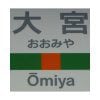| View previous topic :: View next topic |
| Author |
Message |
|
|
|
TypicalUsername
Joined: 23 Sep 2008
Posts: 22
|
 Posted: Fri Jun 03, 2016 10:20 am Posted: Fri Jun 03, 2016 10:20 am
|
 |
|
|
Nothing really to discuss, but I liked the article. I know a few animators, so I've always heard bits and pieces of the process. Thanks for putting it all together and wrapping it in a nice bow. Also, that Un-Go ending from the song to the animation is pretty much one of my favorite endings. I'm biased as I was one of the few that probably loved the crap out of that series.
|
| Back to top |
|
|
|
rizuchan
 Joined: 11 Mar 2007
Joined: 11 Mar 2007
Posts: 982
Location: Kansas
|
 Posted: Fri Jun 03, 2016 10:23 am Posted: Fri Jun 03, 2016 10:23 am
|
 |
|
| Quote: | | The best animators involved with the project and notable freelancers will undoubtedly show up; the opening has one minute and thirty seconds meant to immediately sell the series, so it's often going to have some of the best pieces of animation in the whole thing – sometimes actually better than the series’ peaks. |
While this is true for probably 95% of anime, it always amazes me when you see an OP (or more likely, ED credits) there were... obviously not done by the best artists/animators. It's especially jarring for Eds that are mostly just a still image so you're forced to stare at one of the most poorly drawn stills in the show for 1 min+. Like, I'm pretty sure Pierott has interns do the Naruto Endings.
|
| Back to top |
|
|
|
|
vonPeterhof
Joined: 10 Nov 2014
Posts: 729
|
 Posted: Fri Jun 03, 2016 11:40 am Posted: Fri Jun 03, 2016 11:40 am
|
 |
|
| rizuchan wrote: |
| Quote: | | The best animators involved with the project and notable freelancers will undoubtedly show up; the opening has one minute and thirty seconds meant to immediately sell the series, so it's often going to have some of the best pieces of animation in the whole thing – sometimes actually better than the series’ peaks. |
While this is true for probably 95% of anime, it always amazes me when you see an OP (or more likely, ED credits) there were... obviously not done by the best artists/animators. It's especially jarring for Eds that are mostly just a still image so you're forced to stare at one of the most poorly drawn stills in the show for 1 min+. Like, I'm pretty sure Pierott has interns do the Naruto Endings. |
I think openings and endings serve somewhat different functions, and the part you quoted only really applies to the openings. By the time the viewers first see the ending they've already seen at least one, but very commonly two full episodes, so the need to "sell" the series is much less pronounced. Add to this the fact that ending credits contain much more text, leaving less room to show off the animation. While there are tons of notable exceptions, most endings are basically just there to "play off" the episode with some pretty imagery, so that the viewers don't have to stare at rolling credits against a black background (which does happen, usually when the studio fails to finish the actual ending video on time). So the more sparing use of animator talent is understandable.
On a somewhat related note:
| Quote: | | As a general rule openings will require a handful of key animators (and endings even less so), with an animation director and perhaps chief supervision. Having multiple supervisors and dozens of key animators isn't unheard of though, which is quite scary when you consider the short length; in instances like that they might have required a key animator for every cut or two to be able to get it done. Some sequences need to get finished fast. |
For some time now I've been puzzled by the first opening of Hyōka in this regard, since it had more key animators working on it than any of the individual episodes (the first one came closest, with 21 against 25). It's hard to associate KyoAni with troubled productions, so I've been wondering what the story was behind this one.
Anyway, thanks to Kevin for another interesting and informative instalment in this series, looking forward to the next one!
|
| Back to top |
|
|
|
|
Zhou-BR
Joined: 28 Feb 2008
Posts: 1474
|
 Posted: Fri Jun 03, 2016 4:32 pm Posted: Fri Jun 03, 2016 4:32 pm
|
 |
|
|
I've been curious about the "literature" (文芸) credit, because I've seen many anime scriptwriters get it at the beginning of their careers. I suppose it's something similar to the job Shirobako's Midori had on The Third Aerial Girls Squad, working as a research assistant for the writers and occasionally getting to write a scene or maybe even an entire episode.
|
| Back to top |
|
|
|
AholePony
 Joined: 04 Jun 2015
Joined: 04 Jun 2015
Posts: 330
Location: Arizona
|
 Posted: Fri Jun 03, 2016 5:18 pm Posted: Fri Jun 03, 2016 5:18 pm
|
 |
|
Yet another great entry to this series. I think I've learned more from this third entry than the other two combined, great stuff.
Since we've finally reached the topic of outsourcing and production assistance, I had one question that I've had for several years now. Who is and what does Triple A do? I'm sure its because their name is in English but I see them in credits all the time. At first I was thinking the A might mean its in the Aniplex/A1 family, but I have seen them on so many non-Sony series I can't tell. My best/gut guess is they might be a CG house? Any info would be great I can lay to rest this burning question lol. Google has turned up nothing 
|
| Back to top |
|
|
|
ultimatemegax
 Joined: 26 Jan 2010
Joined: 26 Jan 2010
Posts: 412
|
 Posted: Fri Jun 03, 2016 5:29 pm Posted: Fri Jun 03, 2016 5:29 pm
|
 |
|
| AholePony wrote: | Yet another great entry to this series. I think I've learned more from this third entry than the other two combined, great stuff.
Since we've finally reached the topic of outsourcing and production assistance, I had one question that I've had for several years now. Who is and what does Triple A do? I'm sure its because their name is in English but I see them in credits all the time. At first I was thinking the A might mean its in the Aniplex/A1 family, but I have seen them on so many non-Sony series I can't tell. My best/gut guess is they might be a CG house? Any info would be great I can lay to rest this burning question lol. Google has turned up nothing  |
Triple A is a Korean studio that is typically used to draw in-betweens, but has drawn key animation for some episodes at times. They are not listed in the giant Sony company structure either.
|
| Back to top |
|
|
|
AholePony
 Joined: 04 Jun 2015
Joined: 04 Jun 2015
Posts: 330
Location: Arizona
|
 Posted: Fri Jun 03, 2016 5:59 pm Posted: Fri Jun 03, 2016 5:59 pm
|
 |
|
|
Awesome, thanks for the reply. I'm free now! My guesses were all wrong I see.
Another question came to mind reading this new article. Are there reasons we sometimes see logos for other studios in the credits while other times its spelled out in kanji or often katakana? Just the style of the OP/ED or maybe they might want to be more anonymous? Do you think a larger company might want their credit removed if the project became controversial or something? Japanese corporate politics can get weird. I'm sure there's more than a few soured relationships between some companies with all the things that can go wrong in production.
|
| Back to top |
|
|
|
|
Yuyucow
Joined: 30 Sep 2015
Posts: 18
|
 Posted: Fri Jun 03, 2016 7:07 pm Posted: Fri Jun 03, 2016 7:07 pm
|
 |
|
| vonPeterhof wrote: |
On a somewhat related note:
| Quote: | | As a general rule openings will require a handful of key animators (and endings even less so), with an animation director and perhaps chief supervision. Having multiple supervisors and dozens of key animators isn't unheard of though, which is quite scary when you consider the short length; in instances like that they might have required a key animator for every cut or two to be able to get it done. Some sequences need to get finished fast. |
For some time now I've been puzzled by the first opening of Hyōka in this regard, since it had more key animators working on it than any of the individual episodes (the first one came closest, with 21 against 25). It's hard to associate KyoAni with troubled productions, so I've been wondering what the story was behind this one. |
They operate differently for shorter work like openings and commercials. The Evergarden one recently had 6 key animators (basically 1-2 per cut), which is basically what they require to animate entire episodes. I guess it makes sense to make regular size key animator units when you've got all those people available in-house and need to animate something impressive. Stuff like this is another reminder that common trends don't always apply. For the most part you should take a large number of animation directors are a very bad sign, yet the Love Live movie has as far as I know the highest count anime has ever had, just because Sunrise's policy with projects like that is getting TONS of people to polish them.
| AholePony wrote: | | Another question came to mind reading this new article. Are there reasons we sometimes see logos for other studios in the credits while other times its spelled out in kanji or often katakana? Just the style of the OP/ED or maybe they might want to be more anonymous? Do you think a larger company might want their credit removed if the project became controversial or something? Japanese corporate politics can get weird. I'm sure there's more than a few soured relationships between some companies with all the things that can go wrong in production. |
A branding/stylistic thing. Most studios just have their name written out normally, but companies like ABC have a logo attached even to the name of producers.
|
| Back to top |
|
|
|
|
molibdaenum
Joined: 13 Jul 2008
Posts: 85
|
 Posted: Sat Jun 04, 2016 12:30 am Posted: Sat Jun 04, 2016 12:30 am
|
 |
|
|
|
| Back to top |
|
|
|
|
reanimator
|
 Posted: Sat Jun 04, 2016 4:48 am Posted: Sat Jun 04, 2016 4:48 am
|
 |
|
You're not mistaken. Either Triple A has a Korean branch or Koreans working in Japanese studio which it needs further confirmation.
|
| Back to top |
|
|
|
omiya
 Joined: 21 Sep 2011
Joined: 21 Sep 2011
Posts: 1876
Location: Adelaide, South Australia
|
 Posted: Sat Jun 04, 2016 5:34 am Posted: Sat Jun 04, 2016 5:34 am
|
 |
|
|
The Aniplex - Sony singers relationship mentioned in the article leaves one wondering what makes for a bad combination of singers and composers/lyricists (or simply getting into a rut of predictability with a lack of originality in the songs).
On the other hand, it would be difficult to imagine some franchises without particular composers/lyricists or artists providing the OP/ED songs, even if they aren't voice actors/actresses (e.g. Fafner with Angela).
|
| Back to top |
|
|
|
|
vonPeterhof
Joined: 10 Nov 2014
Posts: 729
|
 Posted: Sat Jun 04, 2016 9:27 am Posted: Sat Jun 04, 2016 9:27 am
|
 |
|
| Yuyucow wrote: | | They operate differently for shorter work like openings and commercials. The Evergarden one recently had 6 key animators (basically 1-2 per cut), which is basically what they require to animate entire episodes. I guess it makes sense to make regular size key animator units when you've got all those people available in-house and need to animate something impressive. Stuff like this is another reminder that common trends don't always apply. For the most part you should take a large number of animation directors are a very bad sign, yet the Love Live movie has as far as I know the highest count anime has ever had, just because Sunrise's policy with projects like that is getting TONS of people to polish them. |
I see, thanks for the explanation. I assumed it was something like this, but since I couldn't recall it happening in any other KyoAni projects I wasn't sure. Although now that I've checked, they also had more key animators on the opening than any of the episodes in K-On!, the second half of K-On!!, Nichijou and Free! Eternal Summer, so it's apparently not quite as unusual for them as I thought. It caught my eye in Hyōka mostly thanks to this screen.
|
| Back to top |
|
|
|
NishizawaMihashi
 Joined: 23 Feb 2016
Joined: 23 Feb 2016
Posts: 29
Location: Malaysia
|
 Posted: Sun Jun 05, 2016 8:26 am Posted: Sun Jun 05, 2016 8:26 am
|
 |
|
So I met up with Asao Yoshinori from GAINAX Fukushima just several hours ago and I asked him about what it takes to be a part of production management and well, besides the usual requirements, apparently I also need some kinda special license? I wasn't able to ask on how I'm able to get that license but I hope that somebody can help me out on that. Anyone? 
|
| Back to top |
|
|
|
|
vonPeterhof
Joined: 10 Nov 2014
Posts: 729
|
 Posted: Sun Jun 05, 2016 11:08 am Posted: Sun Jun 05, 2016 11:08 am
|
 |
|
| NishizawaMihashi wrote: | So I met up with Asao Yoshinori from GAINAX Fukushima just several hours ago and I asked him about what it takes to be a part of production management and well, besides the usual requirements, apparently I also need some kinda special license? I wasn't able to ask on how I'm able to get that license but I hope that somebody can help me out on that. Anyone?  |
Knowing how much the Japanese love their occupational licences and exams I wouldn't be terribly surprised if they were to introduce an "anime production licence", but as far as I know the only kind of licence anime companies require prospective production assistants to have is an ordinary vehicle driving licence. This was mentioned as a necessary prerequisite in all the PA job ads I've seen. Makes sense, since the PAs often have to physically transport cuts and recordings to and from studios, freelance animators' homes and TV stations.
|
| Back to top |
|
|
|
NishizawaMihashi
 Joined: 23 Feb 2016
Joined: 23 Feb 2016
Posts: 29
Location: Malaysia
|
 Posted: Sun Jun 05, 2016 12:22 pm Posted: Sun Jun 05, 2016 12:22 pm
|
 |
|
| Quote: | | Knowing how much the Japanese love their occupational licences and exams I wouldn't be terribly surprised if they were to introduce an "anime production licence", but as far as I know the only kind of licence anime companies require prospective production assistants to have is an ordinary vehicle driving licence. This was mentioned as a necessary prerequisite in all the PA job ads I've seen. Makes sense, since the PAs often have to physically transport cuts and recordings to and from studios, freelance animators' homes and TV stations. |
Hmm, if that is the case, then if I ever get the chance to visit Japan again I'll go ask around and see exactly what do they mean by 'licence'. It'll be most helpful if there are any links on the net whatsoever to get all the necessary info. Anyways, if it's just a driving licence, I think that's manageable however, I would assume that I'd have to either convert that licence or re-take tests and stuff to drive on Japanese roads. Though an international licence can potentially subvert those requirements.
Anyhow, main plans of producing my own stuff aside, getting a position as a PA is one way of taking part in the process. Though the most ideal situation of all is to either own a studio outright or establish one from the ground up.
|
| Back to top |
|
|
|
|
